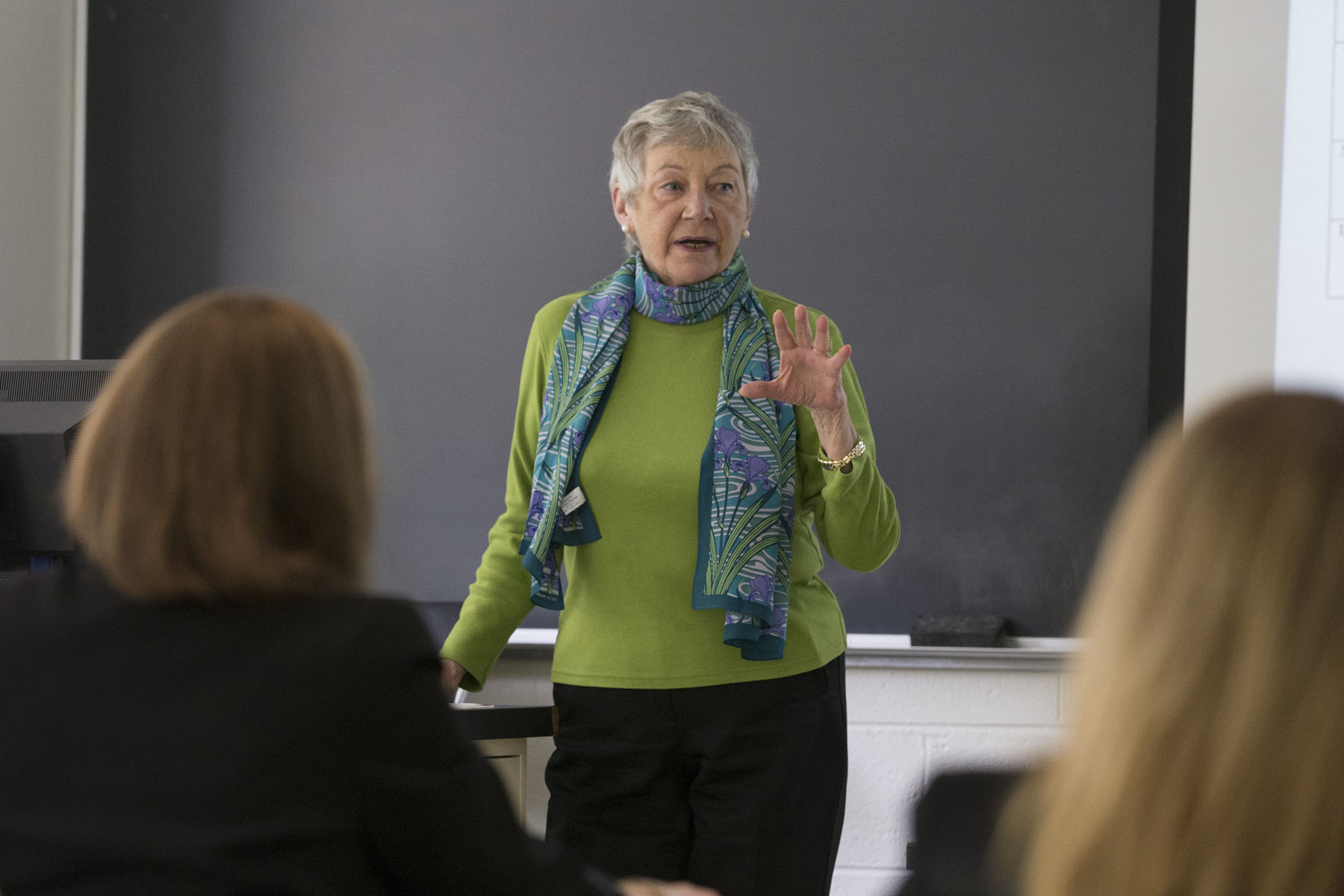Second in an occasional series.
People naturally try to better their conditions – personally and as societies. For societies, a level of engineering is often involved, so it benefits engineers to look at not only the problems, but at the impact of the possible solutions, examining the unintended consequences of what some may perceive as improvements.
”Improved” societies are often dubbed “utopias,” places of perfection. But perfection is an ideal, usually impossible or impractical to reach. These are the issues that Catherine Baritaud addresses in her University of Virginia Summer Session course, “Utopias and the Technological Society,” which is open to all students, but targeted toward engineers.
“All utopias are engineered societies,” said Baritaud, a lecturer in the School of Engineering and Applied Science’s Engineering and Society department. “Engineering is social experimentation with the culture of technology created by man for his benefit.”
Baritaud, who has taught the course for several years, exposes the students to the works of Greek philosopher Plato; social philosopher Thomas More, who coined the word “utopia” from two Greek words meaning “no” and “place”; and Edward Bellamy, whose 1888 book, “Looking Backward,” described a utopian future.
Baritaud noted that utopian thought comes from humans’ desire to correct things in society they perceive are not working. “People want to make a better life,” Baritaud said. “Whether it is learning how to carry fire or how to make fire.”
She said that in each culture, non-engineers have ideas about making it better, whether it is a faster computer or a better telephone. But with the faster computer or the better telephone, what happens to the old technology? Are the slower computers and outdated telephones shipped to a Third World country, where they become part of the pollution problem?
“People don‘t look at all the ramifications,” she said. “I want the students to question the designs and the culture, and look at them not from the perspective of today, but from the view of what is the problem.”
She uses the works of More and Bellamy to expose the students to the utopian visions of the past, and she has them explore other social movements, such as the Oneida Community or the Chautauqua Movement, to see what went wrong, what went right and what came out of them.
“I want the students to learn to ask questions,” she said. “What is the ‘real’ problem here? Will the ‘solution’ really work? And also to realize that it may not work and that the real ‘solution’ may be simpler.”
And to realize that part of the issue may be who perceives a situation as a problem.
“Learning how to ask questions is an important skill,” she said. “This can be a huge ‘aha’ moment for them.”
Raising such questions has been a part of the culture of engineering at U.Va., which has for more than 100 years required fourth-year students to complete a two-part thesis project, the first technical research and the second a social analysis.
“How does it fit?” Baritaud said. “They have to examine some aspect of the technology on the feasibility to society, the social experiment.”
She also challenges students to question homeostasis, where the society reaches a level wherein it feels that a technology is perfected and stops seeking to improve it.
“Why stop exploring for a better way?” Baritaud said.
In looking for a better way, the students need to apply more than technical expertise and use ethical standards to make decisions. For some, this is an epiphany.
“The joy is when the light bulb comes on,” she said.
Part of that light bulb for some students involves understanding that engineers can find careers in public policy, a realization that struck Kathryn McAtamney, 19, a rising third-year chemical engineering major from Falls Church.
“I found I could push into public policy and deal with societal, moral and technological innovations,” she said. “It would be like engineering without tinkering with my hands.”
McAtamney started out as a pre-commerce student, but then transferred to the Engineering School because it seemed more interesting. She thinks the utopia course is fantastic because of the amount and level of discussion it involves.
“You really get to know your fellow engineering students,” she said. “In a lot of other classes, you get to learn about applications, but not about where you can take them.”
She also praised Baritaud for her knowledge of the most current technology in fields such as waste management and water systems.
“In a lot of the other classes, we analyze the past, but we don’t get to see the future,” McAtamney said.
Andrea McPartland, 19, of San Diego, a rising third-year biomedical engineering major, said the course has broadened her horizons.
“Engineering makes you think about innovation, but this class makes you think about the moral implications,” she said. “It teaches you to be socially aware and think about the ethical questions.”
She said there are more discussions in this course than in other engineering courses, discussions where students can bring their own ideas about morality, history and ethics.
“It makes me think about going beyond creating,” she said. “That is important, but this shows me what else you can do with an engineering degree, such as public policy.”
“The students have been exposed to a variety of methods to ask tough questions and to know when something needs to be explored deeper,” Baritaud said. “The most important take-away lesson for them is to realize they are part of a larger world and that everything they create will affect someone else, maybe someone they never know.”
Media Contact
Article Information
June 13, 2013
/content/summer-session-2013-engineers-explore-society-s-utopian-tendencies

